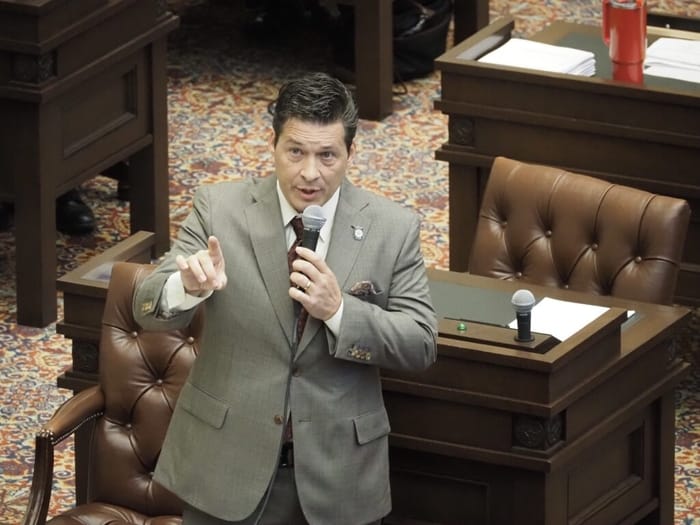Dear Mr. Musk,
I read you've told President-elect Trump you can cut $2 trillion out of the $6.73 trillion federal budget, and that you've said you can do that by slimming the number of federal agencies to 99 from more than 400. Count me a skeptic. But I
I read you've told President-elect Trump you can cut $2 trillion out of the $6.73 trillion federal budget, and that you've said you can do that by slimming the number of federal agencies to 99 from more than 400.
Count me a skeptic. But I do want to offer a couple of helpful hints for hatchet men.
Start with programs and agencies that have failed.
One example would be the Dietary Guidelines for Americans. DAG has been in existence for 45 years. How has it worked out for promoting a healthy America? Obesity roughly doubled among adults to 34% of the adult population in 2007-2008 from 15% in 1976-1980. It's worse among children and adolescents: The obesity rate more than tripled – to 17% from 5%. In the 30 years between 1970s and 1990s, the incidence of Type 2 diabetes doubled. Americans would probably be just as well getting their dietary health advice from Dr. Oz as from the U.S. Government's Dietary Guidelines. It's time to put the Dietary Guidelines out of their misery.
The Wall Street Journal served up another perfect example recently. President Johnson's Great Society created several agencies intended to increase home ownership – Fannie Mae, Ginnie Mae and Freddie Mac, for instance. When he signed that legislation the home ownership rate in the U.S. was 64%. Today, after billions and billions of federal dollars, the home ownership rate is . . . almost 64%. (In Europe it's about 69%). They failed. Put them on the chopping block. Under Ronald Reagan, the Feds got rid of the Interstate Commerce Commission. There's no reason why we should keep these failed agencies around.
Helpful Hint #2. Look for mission creep. Consider alcohol research. There's a federal agency – the National Institute on Alcoholism & Alcohol Abuse – specifically dedicated to clinical alcohol research. It conducts scientific clinical, epidemiological and drug development research.
There's another agency focused on treatment – the Substance Abuse & Mental Health Services Administration. It provides "training on housing, treatment and recovery models focused on adults, children, and families who are experiencing or at risk of homelessness and have serious mental illness and/or serious emotional disturbance, and substance use." It seeks to find "evidence-based practices." It covers alcohol and other substances abuse, but also homelessness, seasonal affective disorder, Native American Heritage Month, providing "coping tips for disasters, etc." SAMHSA has a division to provide mental health services, another focused on substance abuse prevention and yet another on substance abuse treatment.
What it doesn't have is responsibility for research. And yet, SAMHSA decided to get into the research game through an agency called the "Interagency Coordinating Committee on Preventing Underage Drinking." It is to conduct a literature review and "inform" the Dietary Advisory Guidelines Committee on matters pertaining to diet, alcohol and health.
There are two problems with this: First, Congress had assigned and funded the job of reviewing the science on diet, alcohol and health to the National Academies of Science, Medicine and Technology. Second, there are other federal agencies whose mission is to do exactly that. It's a good bet that this is not the only incidence throughout the federal government where an agency has gone well outside its mission. So, here's Helpful Hint for Hatchet Men #2: Look for those instances where a federal agency has gone outside its congressional mandate.
If an agency has the money to do something Congress has not asked it to do, it has too much money.
The third helpful hint is to avoid thinking that combining agencies will result in improved efficiency. It won't. Proof positive: After 9/11 it was decided to bring a bunch of agencies – ATF, Coast Guard, Secret Service, Customs & Border Patrol, etc., – into a new department, Homeland Security. How has that worked out? Were presidential nominees well protected this year? Was the border effectively enforced?
Bigger is not better. The best government agencies are those that are focused like a laser beam on a specific mission, such as the Alcohol & Tobacco Tax & Trade Bureau. It's name pretty much says it all. It's focused on collecting federal taxes from the alcohol and tobacco industries, regulating trade practices to conform to federal statutes and working with counterparts to promote international trade involving U.S. alcohol and tobacco companies. It's highly efficient and is the No. 3 revenue generator for the U.S. government. It accomplishes all its missions with a staff of about 650 persons.
A final thought: You'd probably get better results if you were able to get federal employees – or recent retirees – to help. They know where the bodies are buried, so to speak. But considering how they have been trashed by President-elect Trump, I suspect you won't get any help from them.
